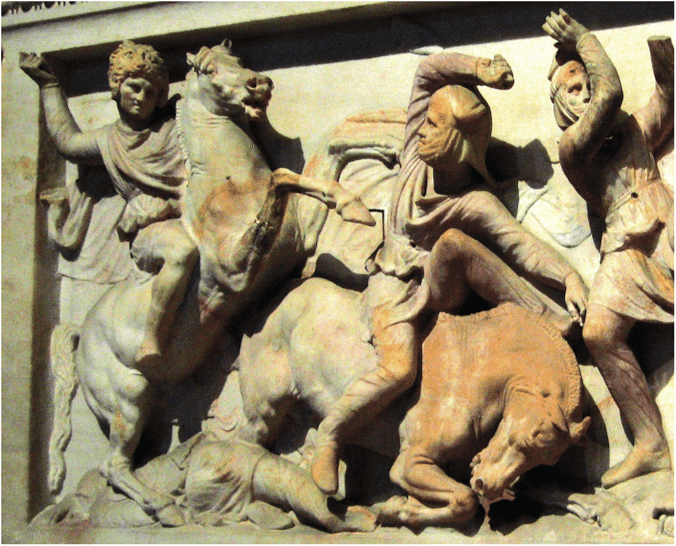Alexander the Great is one of history's most celebrated figures, known for his extraordinary military genius and the expansive empire he forged during his brief but impactful life. Born in 356 BC in Macedon, he transformed the ancient world through his conquests, pushing the boundaries of the known world and establishing a legacy that resonated through the ages. His death in 323 BC marked the onset of the Hellenistic Period, a transformative era characterized by the fusion of Greek culture with those of the conquered lands. This blog post explores Alexander's life, his far-reaching conquests, the establishment of Hellenistic kingdoms, and the rich cultural changes that arose from his campaigns, shaping the world in ways that are still evident today.
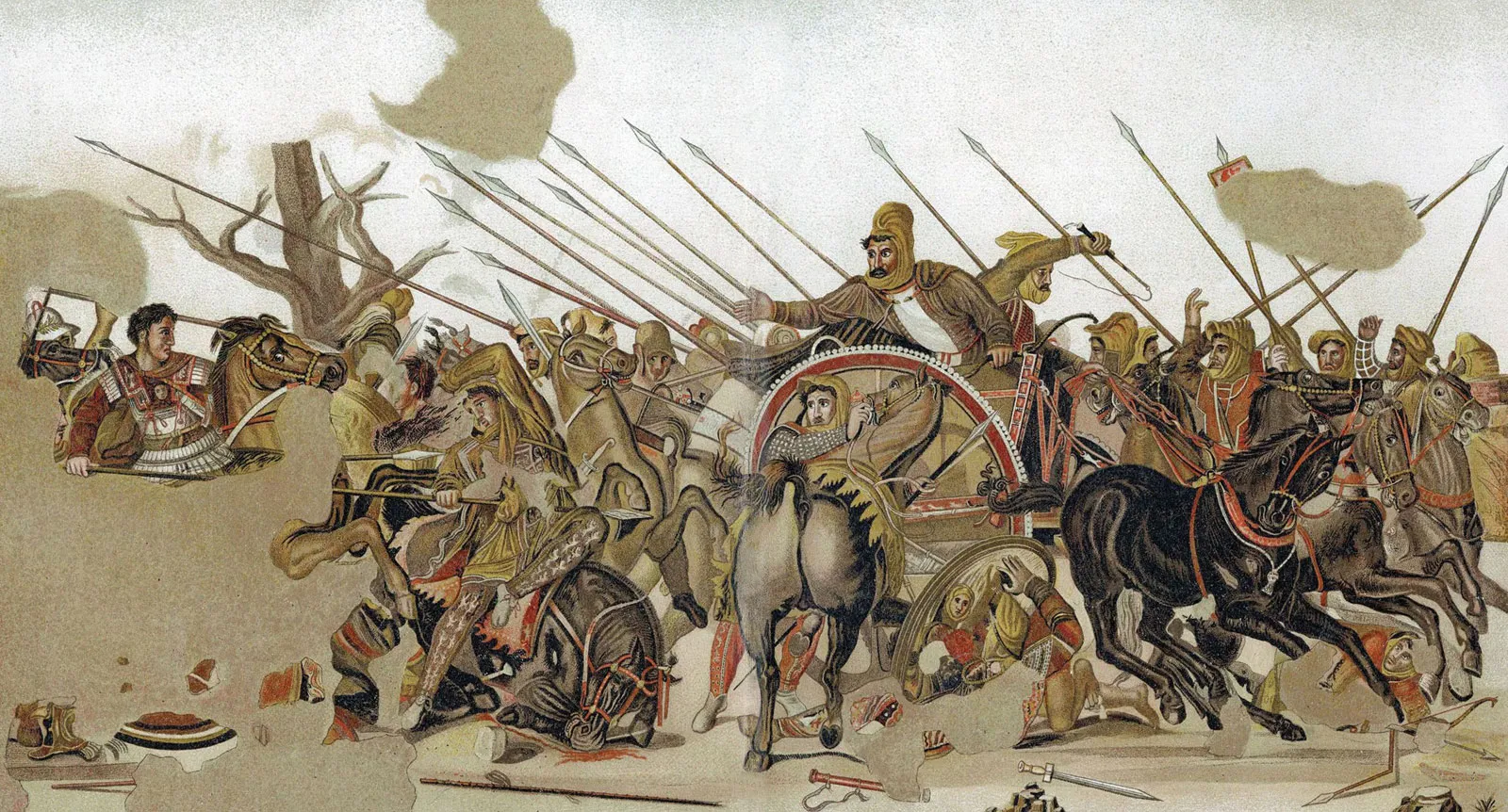
Life and Early Achievements of Alexander the Great
The life of Alexander the Great, a historical figure who would become synonymous with military prowess and visionary leadership, began in 356 BC in Pella, the ancient capital of Macedonia, where he was born to King Philip II and Queen Olympias, and it is essential to understand his formative years to appreciate the extraordinary achievements that would soon follow; raised in an environment that fostered intellectual curiosity, Alexander was tutored by the great philosopher Aristotle, who ignited in him a love for knowledge and instilled a deep respect for Greek culture. From an early age, the potential of this young prince was evident, as he showed a remarkable aptitude for both the arts of war and governance, frequently demonstrating his skills by leading troops during battles alongside his father, which not only laid the foundations for his military genius but also gave him invaluable hands-on experience in leadership. As he transitioned from a young warrior to a formidable commander, Alexander's life was marked by a series of significant accomplishments, not least of which was his ascendance to the throne at the tender age of twenty after the assassination of his father, a crucial moment that would set in motion a chain of events leading to the expansion of the Macedonian Empire; taking immediate steps to consolidate his power, Alexander quelled rebellions in Greece and reinforced Macedonian supremacy by leading a campaign against the Persian Empire, which had long been a formidable adversary of the Greeks. In this relentless pursuit of conquest, he founded numerous cities that bore his name, with the most notable being Alexandria in Egypt, a city that would become a center of culture and learning during the subsequent Hellenistic period, and these actions not only showcased his military prowess but also his vision of creating a cultural amalgamation that would leave a lasting imprint on history. The early achievements of Alexander can be categorized into a few key milestones which delineated his capabilities as a ruler and a strategist; these include:
- The decisive victory at the Battle of Granicus in 334 BC, which marked the beginning of his campaign against Persia.
- The legendary Battle of Issus in 333 BC, where Alexander's tactical innovations turned the tide against an overwhelming Persian force.
- The siege of Tyre in 332 BC, showcasing his determination and innovative siege tactics that secured a strategic coastal city.
- His proclamation as Pharaoh of Egypt in 332 BC, which not only solidified his power but also his status as a god-king through the pharaonic lineage.
- The founding of cities, particularly Alexandria, which became vital centers for the spread of Hellenistic culture.
Keeping in mind these pivotal moments of his early life and achievements, we can understand the foundation upon which Alexander built his illustrious reputation, and it is this very legacy that not only shaped his era but also transitioned into the Hellenistic period following his untimely death in 323 BC, when the vast empire he created began to fragment, giving way to new cultures and political landscapes that would redefine the ancient world. His life, achievements, and the subsequent Hellenistic period ultimately became a transformative chapter in history, bringing forth an era of shared cultural influences that reshaped art, science, and philosophy.
Conquests and Expansion of the Macedonian Empire
The Macedonian Empire, under the astute leadership of Alexander the Great, embarked on a series of audacious military campaigns that not only expanded its territorial reach but also altered the very fabric of the ancient world, resulting in a remarkable legacy that persists to this day; these conquests began in earnest in 334 BCE when Alexander crossed the Hellespont and landed in Asia Minor, embarking on a journey that would see him confront and ultimately defeat powerful armies such as the Persians, who had dominated the region for centuries. Subsequently, the Macedonian forces, equipped with superior tactics and the innovative Phalanx formation, proceeded to claim key cities such as Gordium and, eventually, the great Persian capital of Persepolis, each victory not only signaling military prowess but also solidifying the Macedonian hold over vast portions of land stretching from Greece to the Indus River Valley.
- 334 BCE: Alexander invades Asia Minor.
- 333 BCE: Battle of Issus, victory against Darius III.
- 331 BCE: Conquest of Egypt, crowned Pharaoh.
- 330 BCE: Capture of Persepolis.
- 326 BCE: Battle of the Hydaspes against King Porus.
The strategic brilliance of Alexander's military campaigns cannot be overstated; his ability to adapt, innovate, and inspire his troops was fundamental to the success of the Macedonian army, leading to the rapid expansion of his territory, which, at its height, encompassed vast regions that included Greece, Egypt, Persia, and parts of India, ultimately creating a multicultural empire that laid the groundwork for the ensuing Hellenistic period—a time known for its rich cultural interactions and exchanges. Furthermore, his conquests facilitated not just military successes but also significant cultural diffusion; the fusion of Greek and Eastern cultures in areas such as art, philosophy, and science can be seen as a direct result of the expansive nature of Alexander's campaigns, which blurred geographical and cultural boundaries.
| Year | Major Events | Significance |
|---|---|---|
| 334 BCE | Invasion of Asia Minor | Beginning of Alexander's conquest of the Persian Empire |
| 331 BCE | Battle of Gaugamela | Decisive victory leading to the downfall of Darius III |
| 330 BCE | Capture of Persepolis | Symbolic end of Persian dominance |
| 326 BCE | Battle with King Porus | Expansion into the Indian subcontinent |
In conclusion, the conquests of Alexander the Great were not merely military endeavors but transformative events that fundamentally reshaped the political landscape and cultural interactions of the ancient world, triggering a series of changes that would give rise to the Hellenistic period; this era was characterized by a blending of cultures and the spread of knowledge across a significantly larger geographical area than had ever been achieved before, paving the way for advancements in various fields, including art, science, and philosophy. Thus, one can argue that the expansion of the Macedonian Empire was instrumental not only in affirming Alexander's legacy as a military genius but also in setting the stage for a new era in history that would influence generations to come. Additionally, the aftermath of these conquests left a profound impact on the social and economic structures of the regions involved, as cities like Alexandria emerged as hubs of trade and culture, exemplifying the undeniable influence of Alexander's visionary leadership and the indomitable spirit of the Macedonian forces, which collectively ushered in a new age of interaction and enlightenment, characterized by the extensive diffusion of ideas and cultural practices from various parts of the empire. Therefore, as we reflect on the implications of Alexander's military campaigns, it becomes increasingly evident that they were not just victories on the battlefield but instead pivotal moments that initiated a vibrant, interconnected world, leading directly to the rich tapestry of the Hellenistic period that followed.
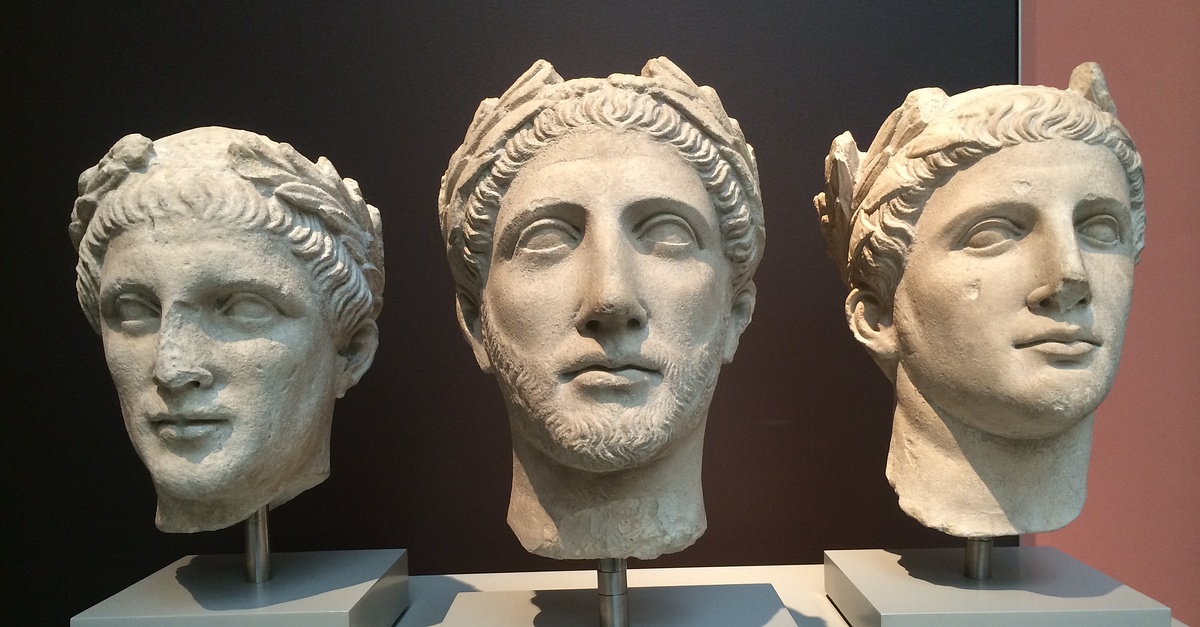
Establishment of the Hellenistic Kingdoms After Alexander's Death
The death of Alexander the Great in 323 BCE marked a pivotal moment in the history of the ancient world, as it not only ended the conquests of this remarkable military leader but also set the stage for the establishment of a series of kingdoms that would come to define the Hellenistic period; this era is characterized by the blending of Greek and Eastern cultures, and its influence would reverberate for centuries. Following Alexander’s untimely demise, an enormous power vacuum emerged, one that instigated fierce competition and conflict among his generals, commonly referred to as the Diadochi, who vied for control over various territories that were once part of his expansive empire. It was through their struggles, alliances, and betrayals that the vast regions Alexander had conquered ultimately splintered into several Hellenistic kingdoms, laying the foundations for a new geopolitical landscape.
- Antigonid Kingdom (Macedonia and Greece)
- Ptolemaic Kingdom (Egypt)
- Seleucid Kingdom (Syria and beyond)
- Attalid Kingdom (Pergamon)
- Greco-Bactrian Kingdom (Bactria)
The primary contenders among Alexander’s former commanders included Ptolemy, who seized control of Egypt, and Seleucus, who secured a substantial portion of the Near East, while Antigonus Monophthalmus sought to establish dominion over Macedonia and Greece, thereby creating a host of new ruling dynasties that would become synonymous with this exhilarating era. The complex dynamics of the period saw these kingdoms often at odds, embroiled in both military confrontations and diplomatic maneuvers, as they endeavored to consolidate their power and expand their territories, contributing to an environment characterized by both turmoil and innovation. In effect, the establishment of these Hellenistic kingdoms resulted in a melting pot of cultures, as each region began to adopt and adapt the traditions, languages, and religions of their neighbors, fostering an unprecedented exchange of ideas and customs.
| Kingdom | Founding Leader | Major City | Region |
|---|---|---|---|
| Antigonid Kingdom | Antigonus I | Antigonia | Macedonia |
| Ptolemaic Kingdom | Ptolemy I | Alexandria | Egypt |
| Seleucid Kingdom | Seleucus I | Seleucia | Mesopotamia |
| Attalid Kingdom | Attalus I | Pergamon | Anatolia |
| Greco-Bactrian Kingdom | Diodotus I | Bactra | Bactria |
As the power struggle amongst these rival factions ensued, the resulting Hellenistic kingdoms maintained distinct identities while simultaneously embracing elements from their Greco-Macedonian heritage, leading to advancements in science, philosophy, arts, and architecture that would shape the cultural landscape of the Mediterranean and Asian realms for generations to come. Moreover, the legacy of Alexander the Great loomed large over these dynasties, often being invoked by rulers to legitimize their claims to power, and the cultural syncretism that emerged during this period ushered in a rich tapestry of advancements that enriched not only the regions under Hellenistic influence but also left a profound mark on the civilizations that followed. In essence, the establishment of the Hellenistic kingdoms after Alexander’s death was not merely a continuation of his legacy but a transformative moment that heralded the dawn of a new era, one marked by its complexity, cultural intermingling, and far-reaching impact on the trajectory of history.
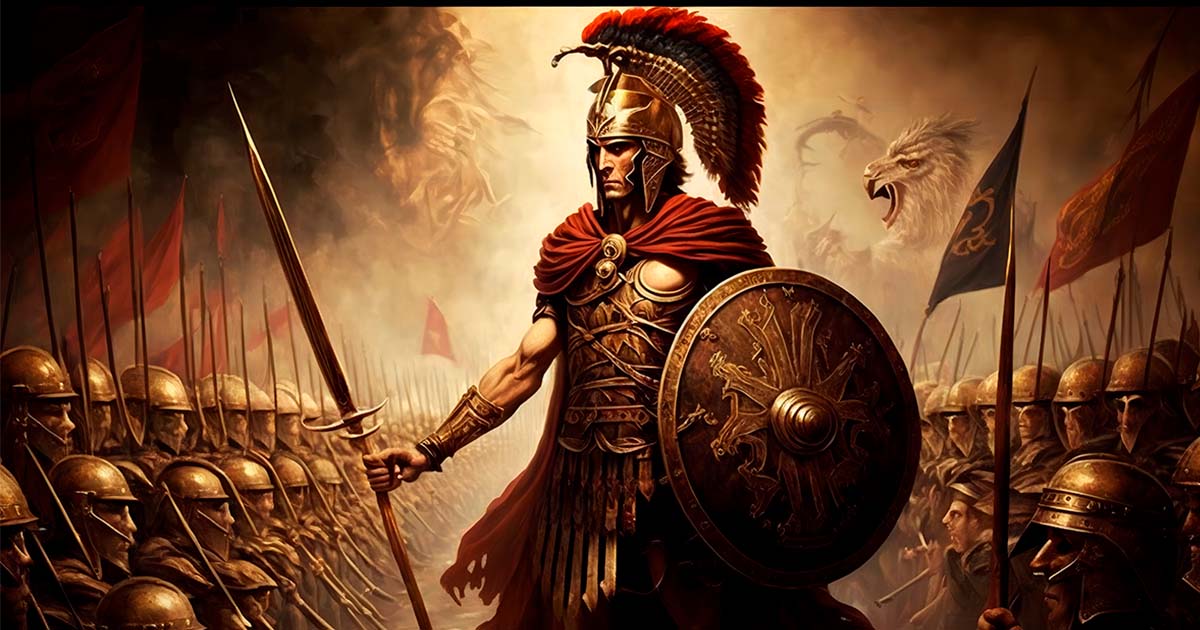
Influence of Alexander's Campaigns on Greek Culture
The military campaigns led by Alexander the Great, which commenced in 334 BC and extended across vast territories, ushered in an era characterized by unprecedented cultural exchange and integration, leaving an indelible mark on Greek culture that would resonate throughout subsequent generations, thereby transforming the tapestry of Hellenic civilization in ways that were both profound and far-reaching. As Alexander’s armies marched through Asia Minor, Egypt, Persia, and into the very heart of India, they not only spread the political dominion of Macedonia but also facilitated the dissemination of Greek language, art, philosophy, and customs, intricately blending the Hellenic worldview with the rich and diverse cultures they encountered along the way. This synthesis ultimately paved the way for the emergence of a new cultural paradigm known as the Hellenistic period, a time wherein Greek culture served as a linchpin connecting various civilizations, fostering an era of intellectual and artistic collaboration. One of the most significant impacts of Alexander's campaigns on Greek culture was the propagation of the Greek language, which became the lingua franca of the eastern Mediterranean and regions of Asia, facilitating communication and trade among various peoples and cultures. As Greek city-states established colonies and founded new cities such as Alexandria in Egypt, these hubs became centers for intellectual exchange and cultural dissemination, where Greek ideals and artistic expressions mingled with local customs and traditions, creating a vibrant and dynamic social fabric. In the words of the historian Arrian, “Alexander was not a conqueror only, but also a disseminator of Greek culture,” emphasizing the dual nature of his legacy that goes beyond mere military success. Some key influences of Alexander’s campaigns on Greek culture include:
- The establishment of Hellenistic cities that served as melting pots of Greek and local cultures.
- The proliferation of Greek philosophy, as thinkers like Diogenes traveled with the army, spreading ideas and dialogues across new territories.
- The enhancement of arts and architecture as seen in the monumental structures of Alexandria which fused Greek styles with local influences.
The military's interaction with varied cultures resulted in art forms that fused traditional Greek techniques with Persian, Egyptian, and Indian motifs, creating a unique style that is characterized by greater emotional expression and realism as compared to preceding classical works. Additionally, the blending of religious practices and beliefs, as priests and philosophers exchanged ideas, led to a rich cross-pollination of thought that helped to shape the religious landscape of the Hellenistic world and beyond. Ultimately, the influence of Alexander's campaigns on Greek culture did not merely signify an external expansion of Greek influence but rather represented an intricate and profound interconnectedness that would shape the course of history within and outside the realms of the Hellenistic period, highlighting the importance of cultural exchange in the advancement of civilization.
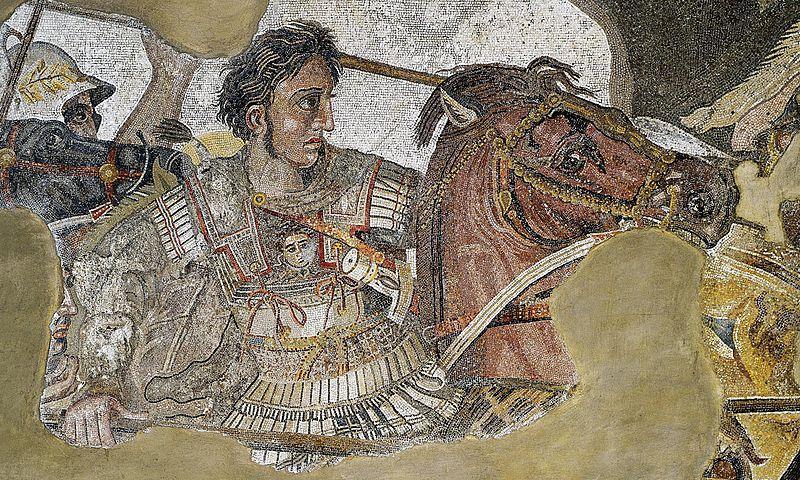
Transition from Classical Greek Period to the Hellenistic Era
The transition from the Classical Greek period to the Hellenistic Era was marked by a significant shift in political power, cultural exchange, and philosophical thought, stemming largely from the conquests of Alexander the Great, whose rapidly expanding empire facilitated the mingling of diverse cultures and ideas that had previously existed in relative isolation from one another. As the influence of Macedonian leadership grew during the late 4th century BCE, the once-dominant city-states of classical Greece, such as Athens and Sparta, began to lose their independent power, ultimately leading to a more cosmopolitan and interconnected world in the Hellenistic period, which lasted from the death of Alexander in 323 BCE until the rise of Roman dominion. This newfound era was characterized not only by the diffusion of Greek culture across the territories conquered by Alexander but also by the blending of Greek traditions with local customs, resulting in a rich tapestry of artistic, scientific, and philosophical progression that would shape the course of history for centuries to come.
| Aspect | Classical Greek Period | Hellenistic Era |
|---|---|---|
| Political Structure | City-states (Poleis) | Empires and Kingdoms |
| Cultural Influence | Local traditions | Fusion of cultures |
| Philosophical Thought | Focus on ethics and the individual | Holistic view including cosmopolitanism |
As the boundaries of the Greek world expanded, with new cities being founded and existing ones redeveloped under Hellenistic influence, significant advancements in various fields such as mathematics, astronomy, and philosophy began to emerge, enabling thinkers like Euclid and Archimedes to build upon the existing body of knowledge established during the Classical period. The focus of education shifted as well, with institutions such as the famous Library of Alexandria becoming centers of learning that attracted scholars from all corners of the known world, thus contributing to the spread of knowledge and ideas that were essential during this transformative period. It is crucial to understand that the Hellenistic period did not merely signify a decline of the classical ideals but rather represented an evolution and expansion of these ideals into new geographical and cultural landscapes. In summary, the transition from the Classical Greek period to the Hellenistic Era was not a discrete event but rather a multifaceted process that encompassed a variety of factors including military conquests, cultural assimilation, and new philosophical developments, all of which together paved the way for what would be recognized as a vibrant and dynamic era in ancient history. As we reflect upon this remarkable transformation, it becomes evident that the Hellenistic period is an essential chapter in the narrative of Western civilization, enabling us to trace the evolution of thought and culture that continues to influence our modern society. The legacy of this era, in terms of artistry, science, and political thought, remains embedded in our understanding of the origins of the contemporary world.
- Macedonian dominance over classical city-states led to increased cultural exchange.
- Creation of new cities stimulated intellectual growth and dissemination of knowledge.
- Philosophy evolved from individual-centric to a cosmopolitan outlook.
Impact of Hellenistic Period on Art and Architecture
The Hellenistic period, which emerged following the conquests of Alexander the Great and extended from the late 4th century BC to the 1st century BC, represented a transformative era in the fields of art and architecture, as the blending of various cultural influences facilitated innovation and creativity that was markedly different from that of the preceding classical Greek period. During this period, artists and architects began to prioritize realism and emotional expression, stepping away from the rigidity and idealism typical of earlier art, resulting in works that showcased not only the physical beauty of their subjects but also the intricate details that conveyed complex human emotions and experiences, making art more relatable and human-centered. As noted by the art historian Warburg, The Hellenistic period marks an era where art was no longer just a representation of deities and heroes, but a powerful medium for human expression and emotional connection. Moreover, architecture during the Hellenistic period reflected this newfound sensibility, as the grand structures built during this time, including monumental buildings and expansive public spaces, were characterized by their grandeur and decorative richness, demonstrating a shift towards an approach that embraced both functionality and aesthetic beauty. A clear example of this evolution can be seen in the design of the Library of Alexandria, which not only served as a center of learning but also encapsulated the aspirations of a cosmopolitan society that was eager to cultivate knowledge while showcasing architectural excellence. Hellenistic architecture incorporated elements derived from various cultures, illustrating a melting pot of ideas, styles, and traditions. In recognition of the Hellenistic period's profound impact on art and architecture, it is essential to outline some of the noteworthy changes that occurred during this transformative time:
- Introduction of realistic portrayals in sculpture, leading to lifelike representations of human figures and emotions.
- Integration of various cultural elements, resulting in eclectic styles and innovative architectural designs.
- Development of expansive public works, including theaters, temples, and marketplaces, which emphasized community and public engagement.
These advancements underscore the significance of the Hellenistic period as a turning point in art and architecture, marking a departure from the ideals of classical antiquity while laying the groundwork for future artistic movements that would continue to evolve in subsequent centuries. Ultimately, the legacy of this era can still be felt today, as the principles of expression, realism, and diversity that emerged during the Hellenistic period have indelibly shaped the artistic landscape in ways that transcend time and cultural boundaries. Through its commitment to exploring the depths of human experience and connection, the art and architecture of the Hellenistic period continue to inspire admiration and intrigue, reminding us of the power of creativity in shaping our understanding of the world.
Social and Political Changes in the Hellenistic World
In the wake of Alexander the Great's unparalleled conquests, the Hellenistic period emerged as a transformative era that reshaped not only the geographical landscape of the ancient world but also the intricate social fabric and political structures of the regions that fell under the sway of his descendants, leading to a profound evolution in the way societies were organized and governance was conceptualized. The vast territories that were once unified under Macedonian dominance began to carve out their own identities, where local customs, traditions, and administrative practices were interwoven with the influences that came from the Greeks, resulting in a rich tapestry of cultural syncretism that defined this epoch.

The Fragmentation of Political Power
The political landscape in the Hellenistic world experienced significant fragmentation, a shift characterized by the dissolution of the vast unified empire that Alexander had established, which, after his untimely death in 323 BCE, led to the emergence of a series of powerful city-states and kingdoms, such as the Ptolemaic Kingdom in Egypt and the Seleucid Empire in Persia. These newly formed entities were frequently embroiled in conflicts, alliances, and power struggles, creating a dynamic and often volatile political climate where rival factions vied for dominance over territories that had once been seamlessly integrated. As a result, the power vacuums created by the absence of a singular, overarching authority paved the way for ambitious generals and former lieutenants of Alexander to assert control, laying down a complex web of rivalries that would define Hellenistic politics.
Social Stratification and Cultural Integration
The social structure of the Hellenistic world reflected both continuity and change, embracing a system of stratification that recognized various social classes, from the ruling elite to the common citizen, all while simultaneously integrating diverse cultures that enriched local traditions and practices. As commerce flourished and trade routes expanded, particularly along the Mediterranean and the Silk Road, a burgeoning middle class emerged, comprised of merchants and artisans who played a pivotal role in the economy, thereby facilitating an exchange of ideas, goods, and cultural practices that would leave a lasting imprint on the societies of the Hellenistic period. Furthermore, the spread of Greek culture, language, philosophy, and art during this era established a cosmopolitan atmosphere where previously isolated communities flourished through increased interactions with other peoples, ultimately fostering an unprecedented blend of cultural elements that would define the Hellenistic identity.
- The rise of new political powers and kingdom formations
- Shifts in social hierarchy and the emergence of a middle class
- The fusion of different cultural practices and traditions
- Intensification of trade networks and economic interactions
- Development of a shared Hellenistic identity through cultural exchange
Legacy of Alexander the Great in Modern Times
The legacy of Alexander the Great is a multifaceted tapestry woven through the very fabric of history, politics, and culture, as the impacts of his life and conquests extend far beyond his brief existence and continue to resonate in the modern world, highlighting his role not only as a military commander but also as a figure of profound cultural synthesis and influence. His exceptional ability to unite vast territories under a singular vision led to the blending of various cultures—Greek, Persian, Egyptian, and Indian—that collectively gave birth to the Hellenistic period, a time when ideas, philosophies, and artistic expressions traveled freely and adapted to create a rich and enduring cultural milieu. Such a transformation presents a crucial point at which we can observe the interplay between conquest and cultural exchange, emphasizing how the legacy of Alexander the Great persists in shaping contemporary thought and various realms of human endeavor. In modern politics, the figure of Alexander the Great frequently emerges as a symbol of visionary leadership, exemplifying how ambition, strategic acumen, and fearless determination can propel individuals and nations to redefine their boundaries and aspirations. Through an enduring fascination with his life and achievements, many contemporary leaders find inspiration in his relentless pursuit of greatness, often invoking his name to describe transformative reforms or military campaigns aimed at expanding influence and achieving greatness. Moreover, his model of empire-building prompts ongoing discussions about governance and cultural integration, as modern societies grapple with how to manage diversity while maintaining unity, thus demonstrating the relevance of his legacy in current political dialogues. - Inspiration for Leadership: Many leaders reference Alexander as a model of strong leadership, particularly in military and political contexts. - Cultural Exchange: Alexander's conquests facilitated a blending of cultures that continues to influence global discourse on multiculturalism today. - Legacy in Education: His strategies and campaigns are frequently studied in military academies around the world, emphasizing his lasting impact on military theory and strategy. - Artistic Influences: The Hellenistic artistic style that emerged following his conquests laid the groundwork for many artistic movements in the Western tradition, influencing the development of art throughout the centuries. Moreover, the portrayal of Alexander in popular culture, whether through films, literature, or academic works, serves to perpetuate his image as a heroic figure, casting a long shadow over history—a shadow that invites both admiration and critique as it raises questions about the nature of power, legacy, and moral responsibility. Such representations also play a critical role in shaping our understanding of the past, as they reflect societal values and their evolution over time, inviting ongoing inquiry into the nature and consequences of ambition and conquest. Hence, the legacy of Alexander the Great embodies not only his historical achievements but also a lens through which we can explore contemporary issues, cultural transformations, and the continued impact of one individual’s vision on the course of human history, illustrating the timeless allure of his story and the multifarious ways it continues to engage, inspire, and challenge us today.
Frequently Asked Questions
Who was Alexander the Great?
Alexander the Great was a Macedonian ruler and military leader who created one of the largest empires in ancient history, spanning from Greece to Egypt and into northwest India.
What were some of Alexander the Great's major achievements?
Some of his major achievements include the conquest of the Persian Empire, founding over twenty cities, and spreading Greek culture throughout his empire, which laid the foundations for the Hellenistic period.
What is the Hellenistic period?
The Hellenistic period is a historical era that began after the death of Alexander the Great in 323 BC, characterized by the spread of Greek culture and influence throughout the Mediterranean and Near East.
How did Alexander the Great influence the Hellenistic period?
Alexander the Great influenced the Hellenistic period by blending Greek culture with those of the lands he conquered, which led to advancements in art, science, and philosophy and the creation of a new cultural synthesis.
What were the key features of Hellenistic culture?
Key features of Hellenistic culture included the spread of Greek language, art and architecture influenced by Greek styles, advancements in science and philosophy, and the establishment of new cities that became cultural hubs.
Who were some notable figures during the Hellenistic period?
Notable figures of the Hellenistic period include philosophers like Epicurus and Zeno of Citium, scientists such as Archimedes and Euclid, and historians like Polybius.
What was the significance of the Hellenistic period in world history?
The Hellenistic period was significant in world history as it marked the diffusion of Greek culture across the known world, paved the way for the Roman Empire, and influenced the development of various fields such as philosophy, science, and the arts.


